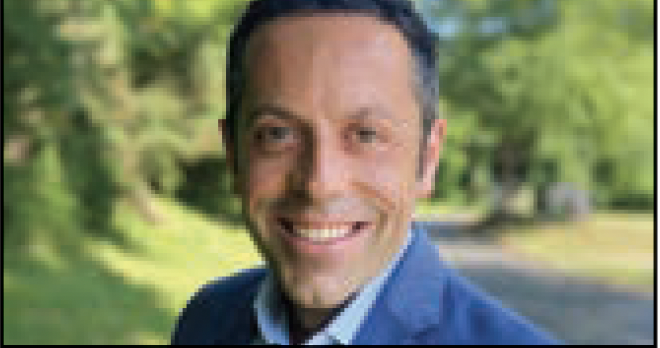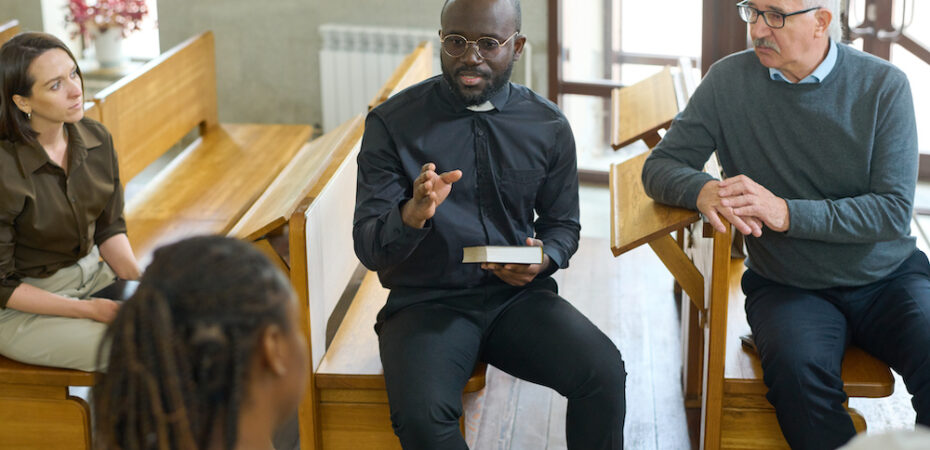Are You Hard to Help?
Three questions to reflect upon before seeking assistance
Daniel Cellucci Comments Off on Are You Hard to Help?
 The answer is yes. It’s not just you, Fathers. All of us make it hard for others to help us sometimes. The better question may be, “In what ways am I hard to help?”
The answer is yes. It’s not just you, Fathers. All of us make it hard for others to help us sometimes. The better question may be, “In what ways am I hard to help?”
Your role is increasingly demanding as you lead against a current. Sometimes, the greatest resistance comes from your own community as you try to make even the smallest changes to help the flock grow. In my conversations with priests over the past two decades, I’ve heard a lot of frustration and disappointment. You need help. Sometimes, you believe you have asked for help and yet are not getting what you need.
In order to get the help you need from others, I offer three questions for reflection in preparation for seeking assistance:
1. Do I need a hand or an ear? Often, priests share their feelings in the hope that someone will respond by taking action. I once attended a parish meeting where the pastor shared very vulnerably how he was feeling overwhelmed and stretched too thin. He confessed afterward to me that he was disappointed no one offered to help. In truth, he didn’t actually ask for anything. As leaders, we all need someone to process with and, yes, even vent to sometimes. Talking to someone is one of the most helpful tools for raising one’s energy. However, it doesn’t communicate a request. Be specific about what you need. The more conscious and concrete you can be with your communication, the easier it is for someone to provide just what you seek.
2. What context do I need to give? Often, we can quickly arrive at the conclusion that it’s easier to do it ourselves: It takes too much work to get someone involved and there’s too much background necessary to know for anyone to take things off our plates. It’s true. It does take work. But, Fathers, it’s also true that if you don’t invest in the upfront work, you won’t get help and will eventually hit a limit to your capacity and to the fruit your leadership can truly bear. Consider writing down some answers to the following prompts:
• The three most important things to know about this project/situation are …
• A fruitful/successful completion of this project/situation would include …
• The five people most important to this situation are …
• Three concerns I have about this situation are …
• Three questions I imagine someone would have about this are …
Writing down your responses will not only help clarify your own thinking, but also will make the conversation with your helper that much more productive.
3. Can I distinguish between my principles and preferences? The more autonomy you can give someone in how they help you, the more likely they will be to own what you are asking them to do. They will be more invested and conscientious about the “how” because it is their plan. Oftentimes, our belief that it would be quicker to go it alone is not only a factor of the time required to set someone else up for success, but also our desire to control the outcome. As leaders, it’s important to paint a vision, as well as provide some guardrails for anything that might be delegated. But we can feel the difference between driving on a highway with painted white lines versus a stretch of construction with narrow concrete walls. Prior to asking for help, try to reflect upon what’s important to the project versus what’s only important to you. Sometimes, it can be helpful to share both your principles and preferences. The tension here is in realizing that if you really want someone to take it off your plate, the finished product may be different than you imagined. Hopefully, it is better than you imagined.
One of my favorite mantras is, “You have to do it yourself, but you can’t do it alone.” By reflecting on the above three questions before you ask for help, you may better get the assistance you need and, more importantly, better invite people into greater discipleship.
DANIEL CELLUCCI is the CEO of Catholic Leadership Institute. His most important vocation is as a husband and father to four children. He lives in the Archdiocese of Philadelphia.





